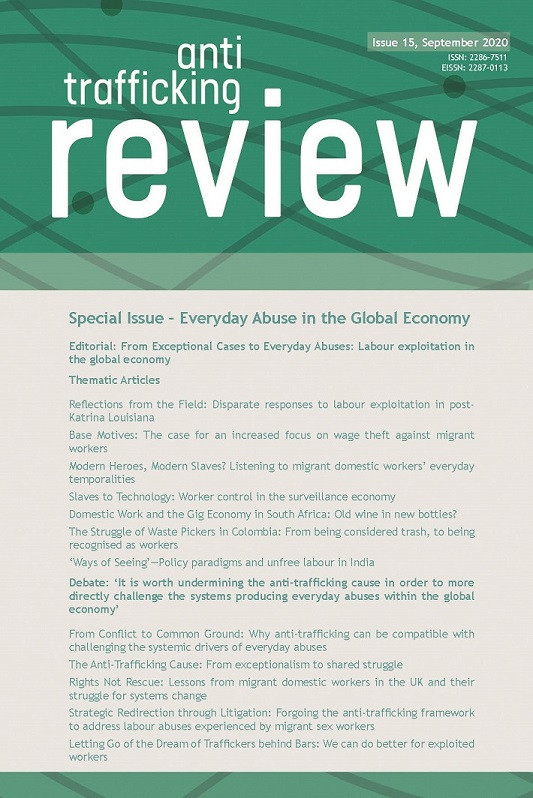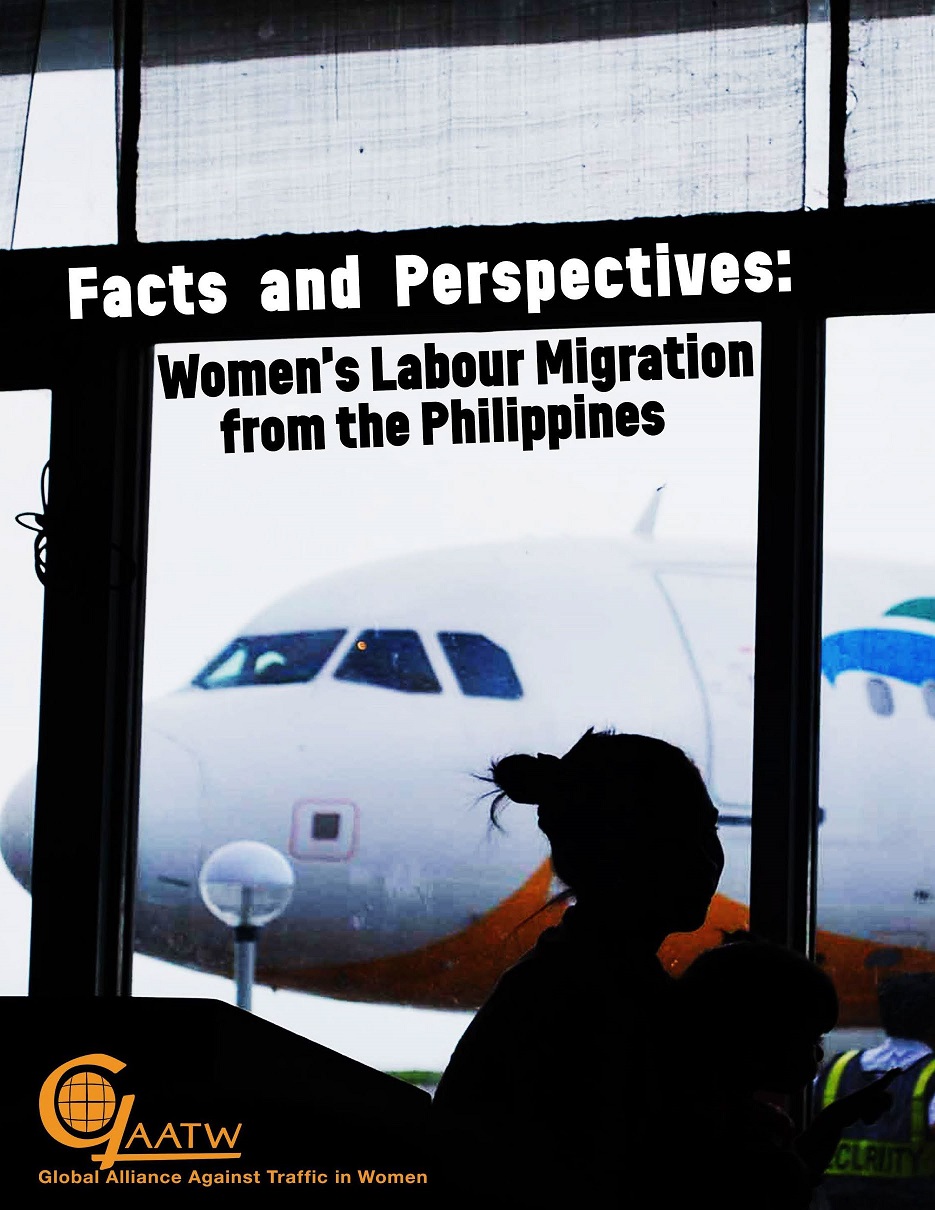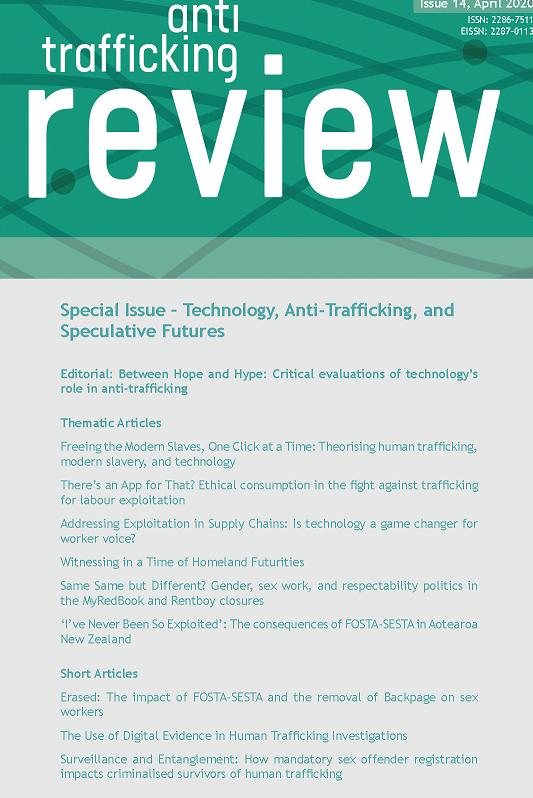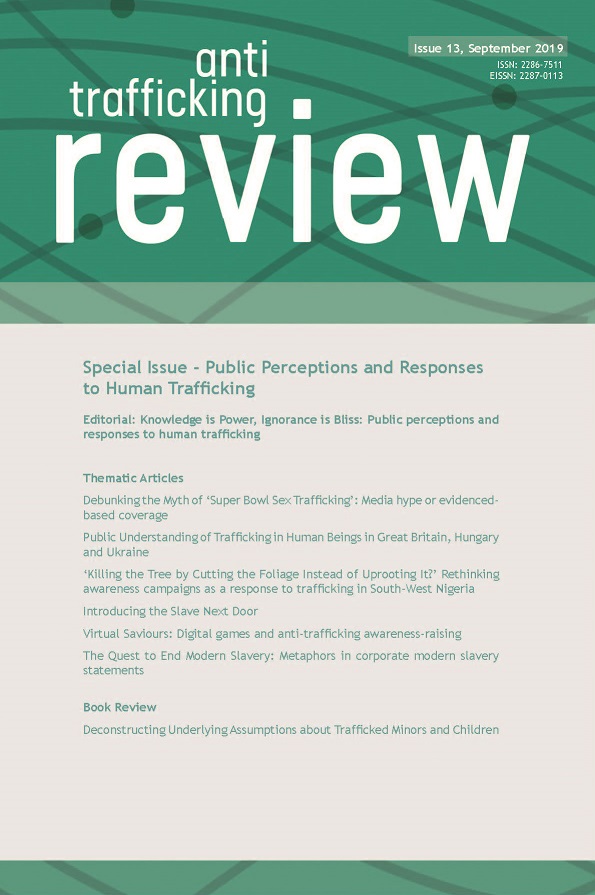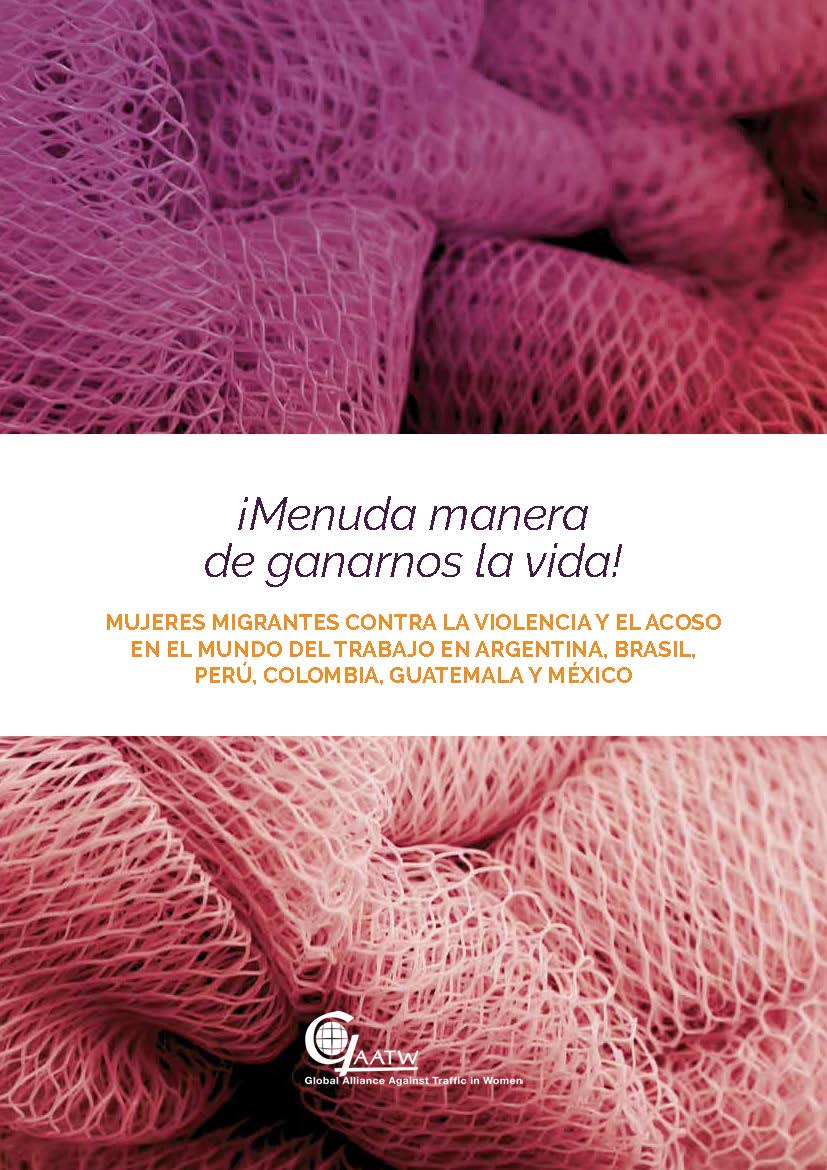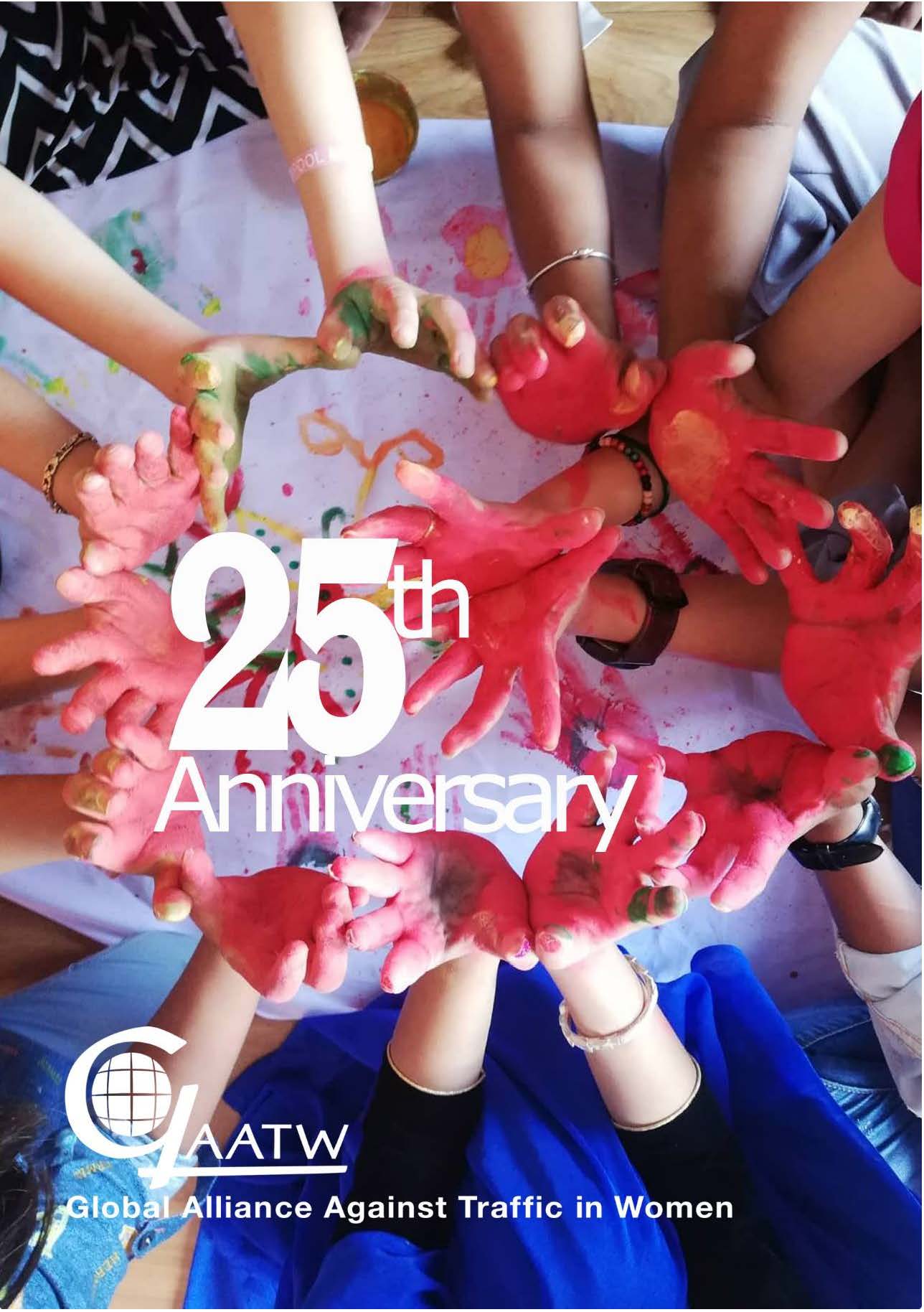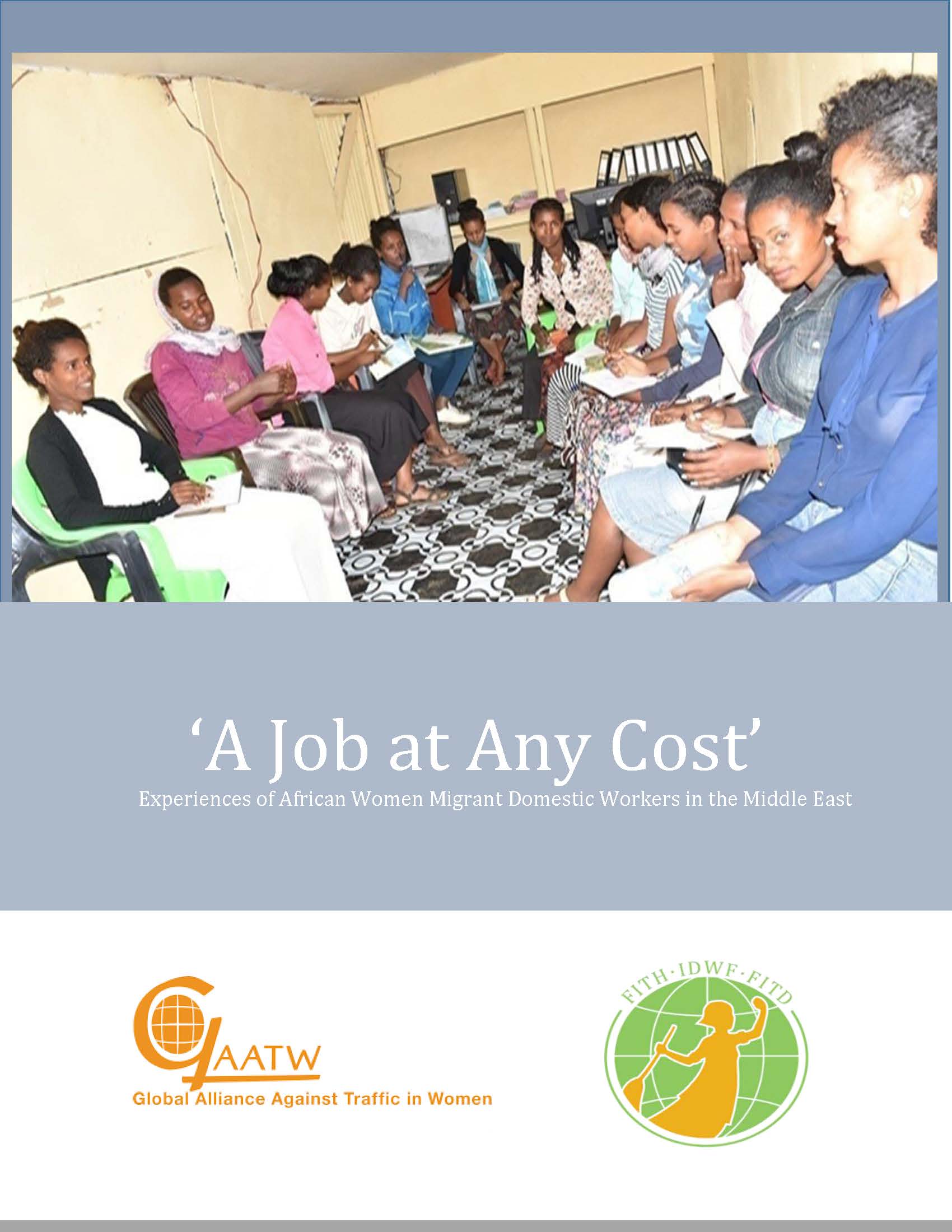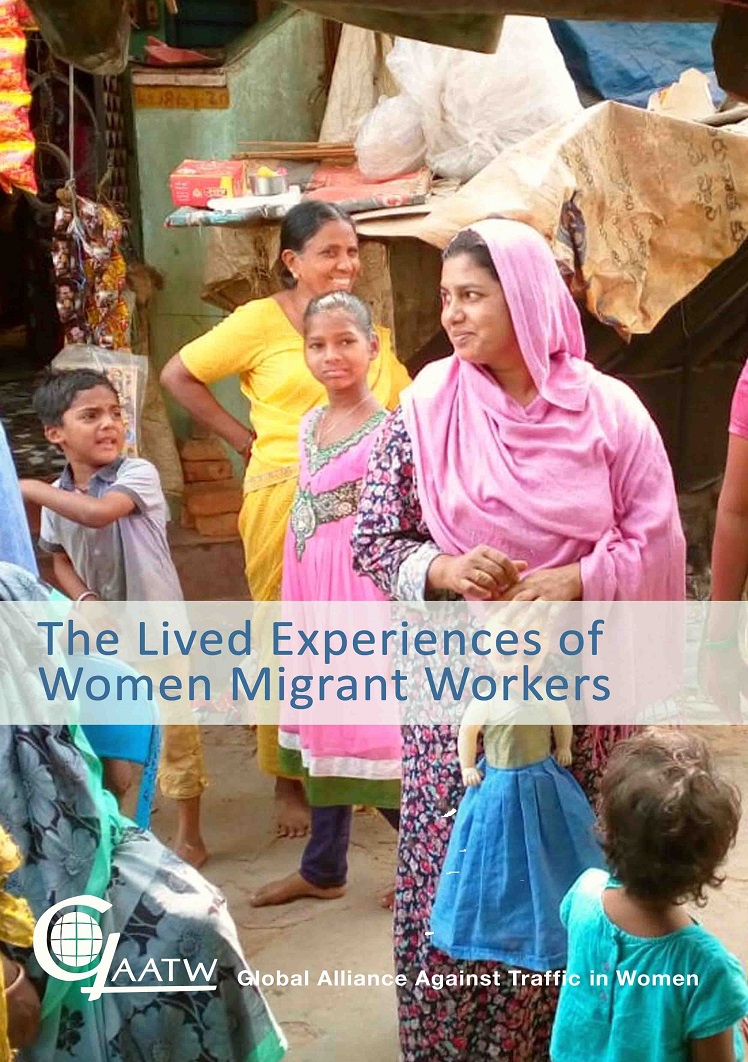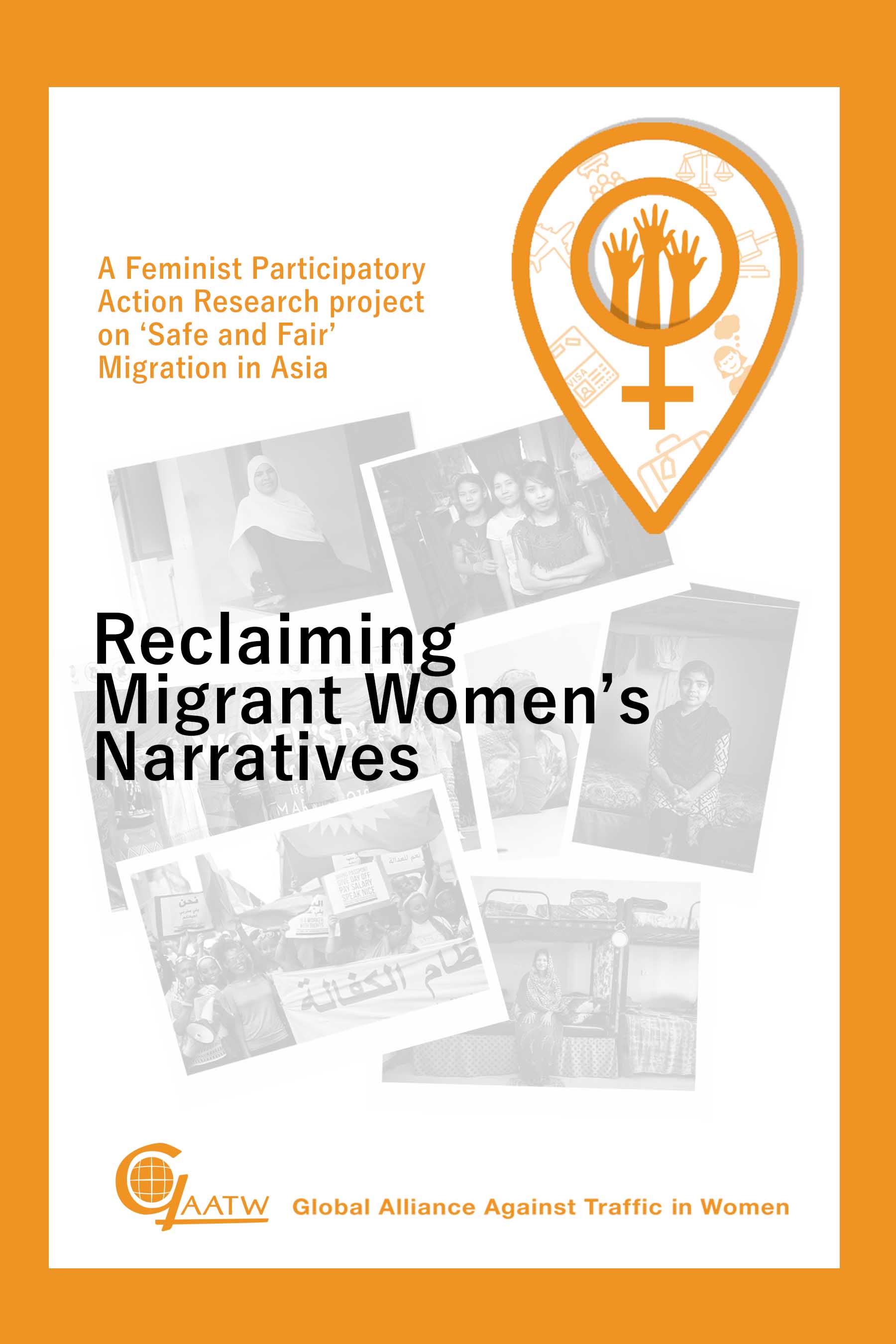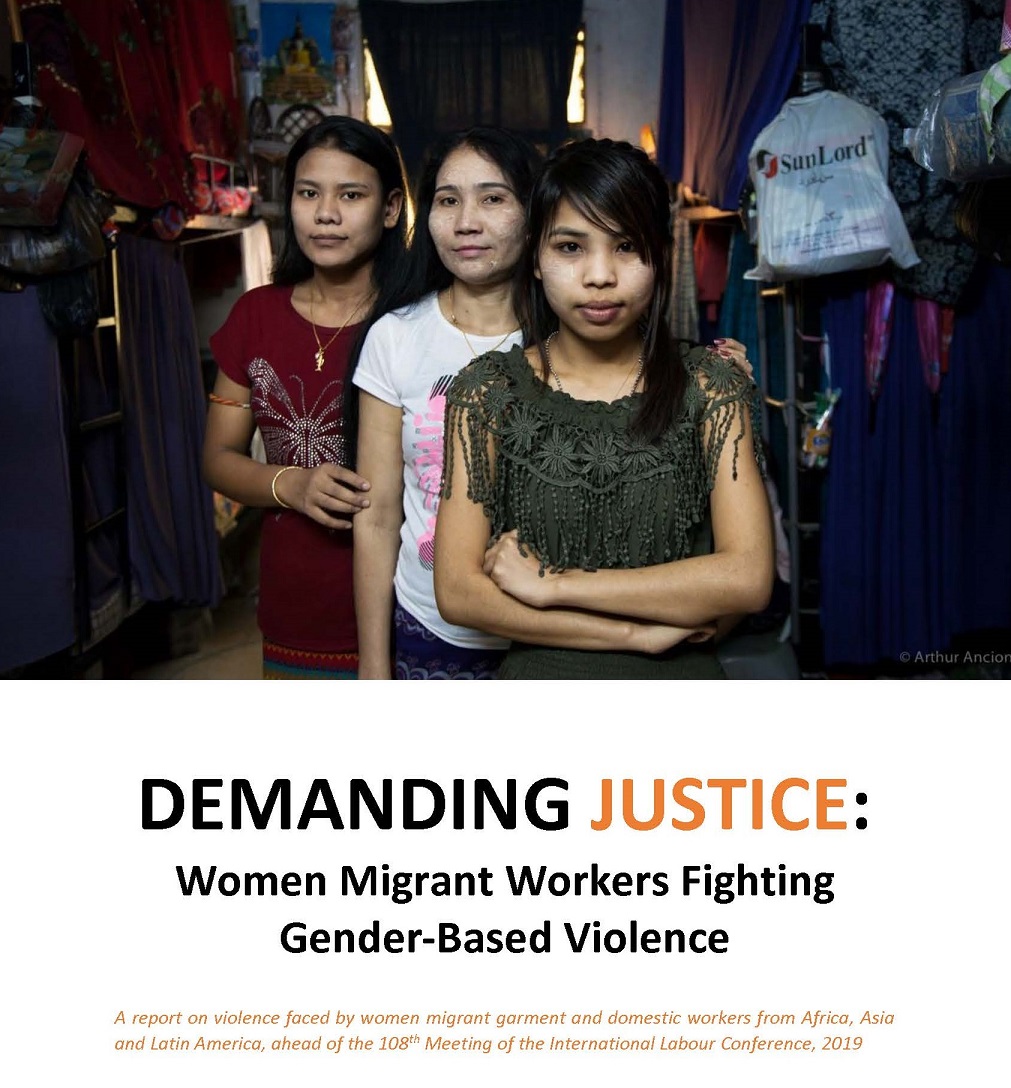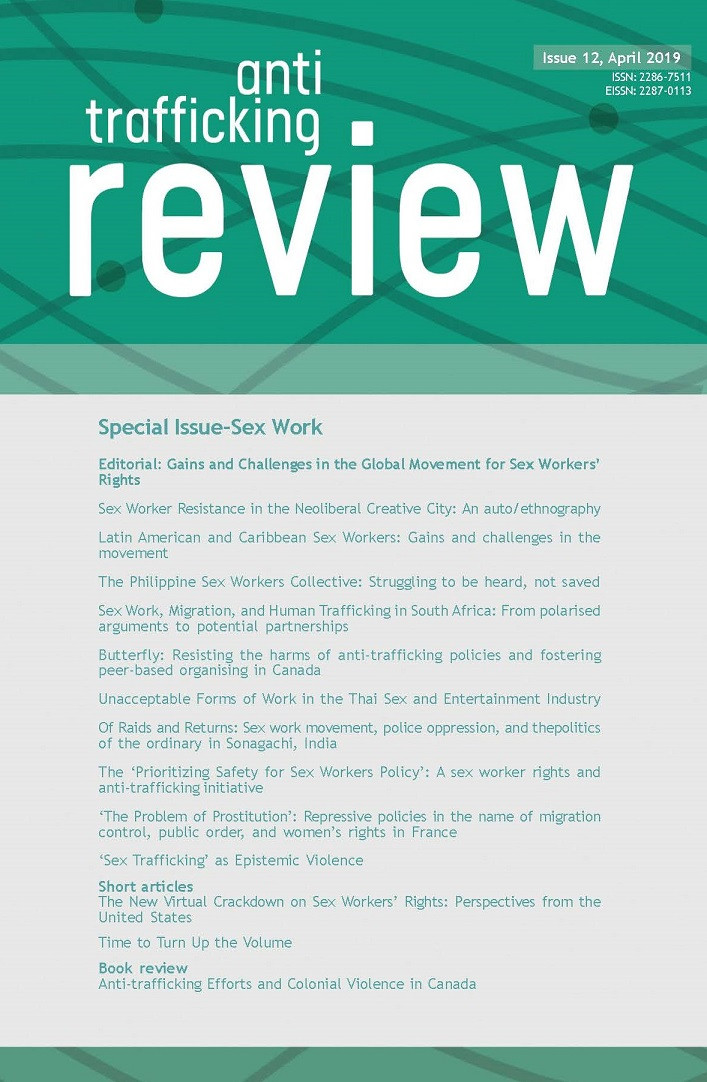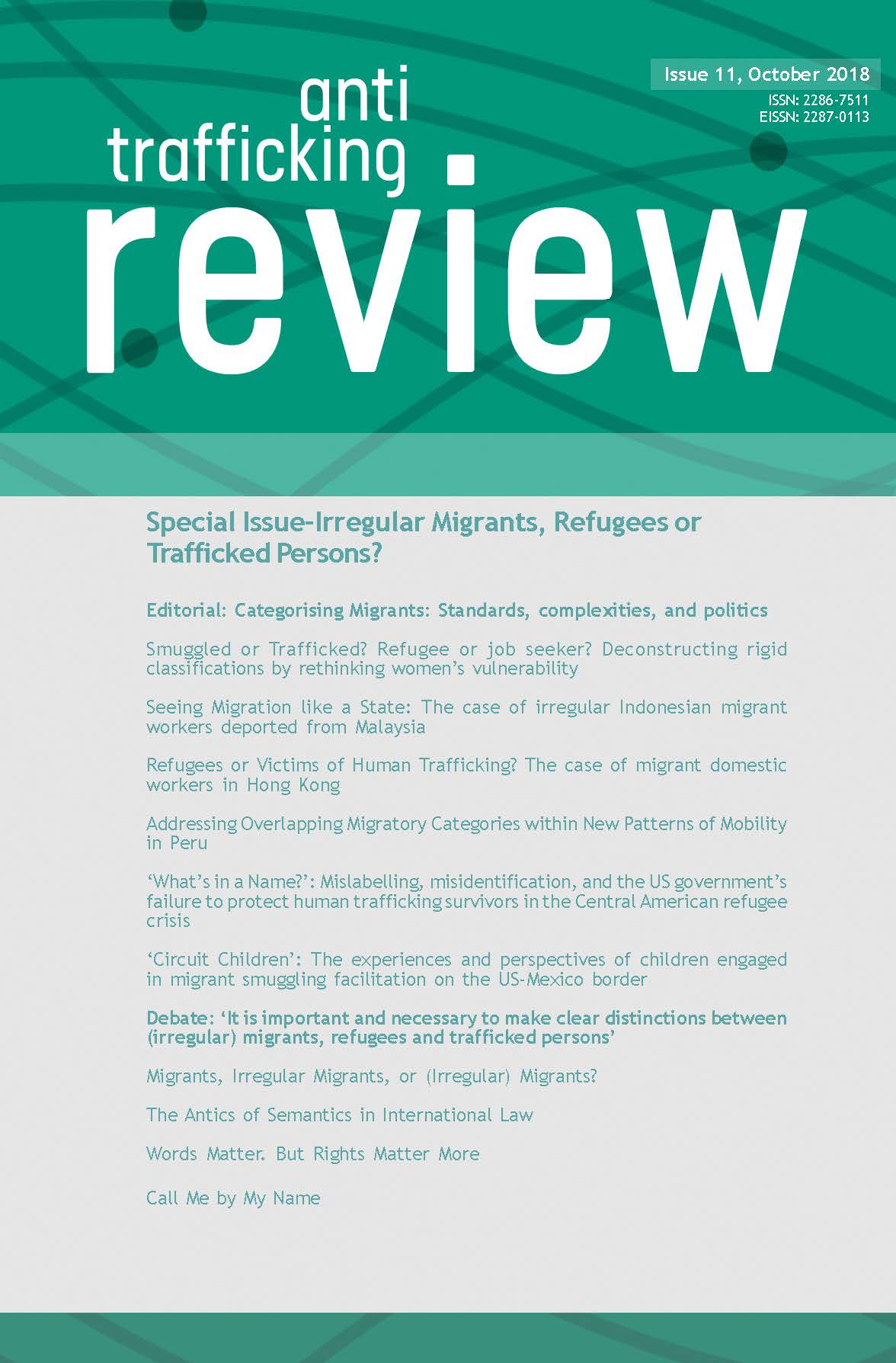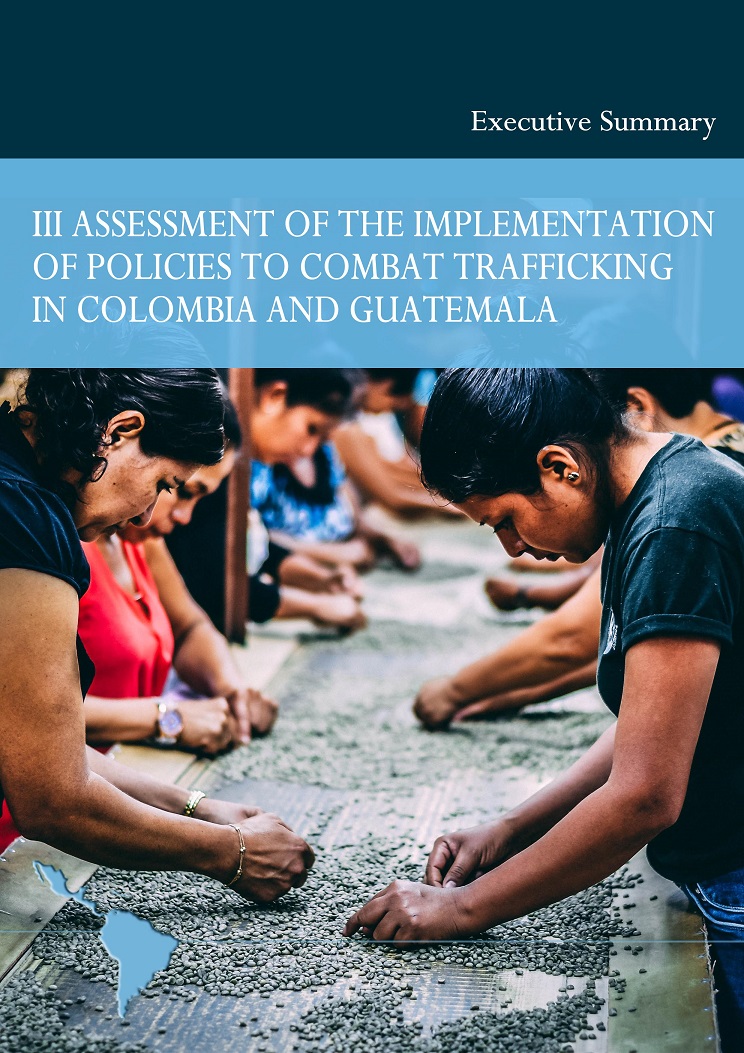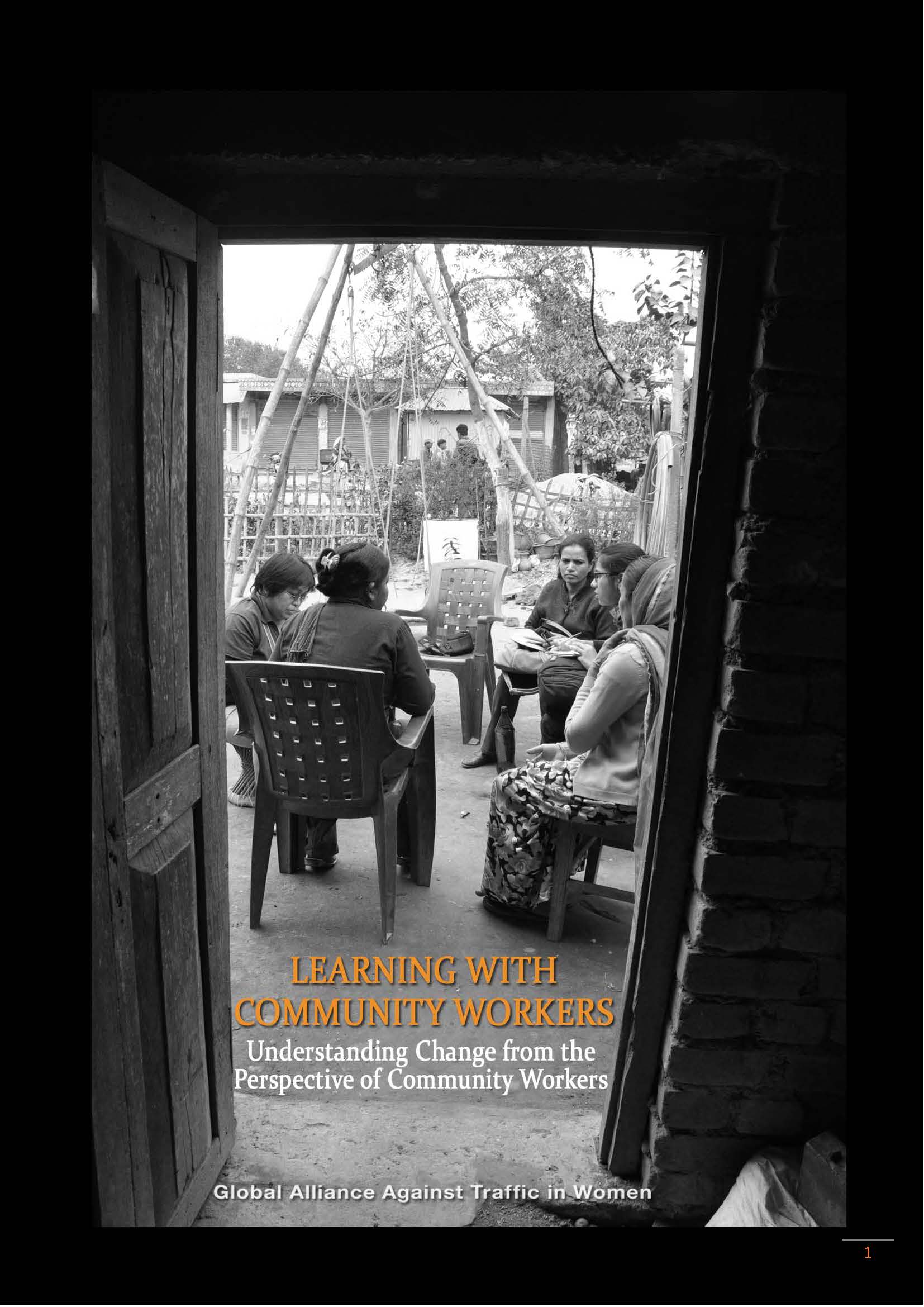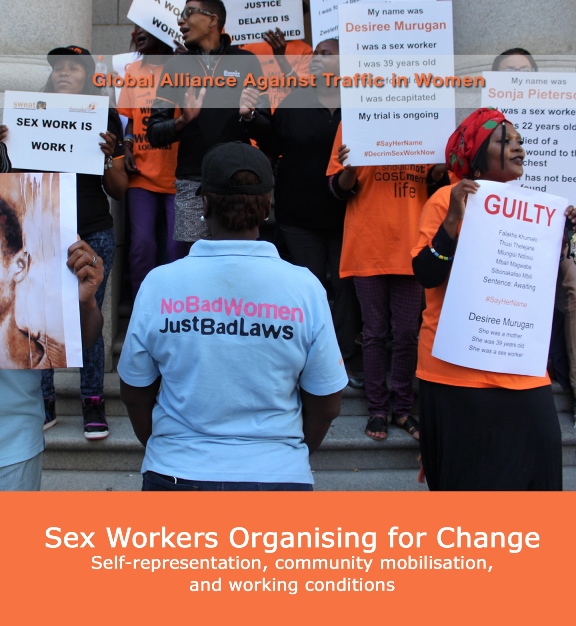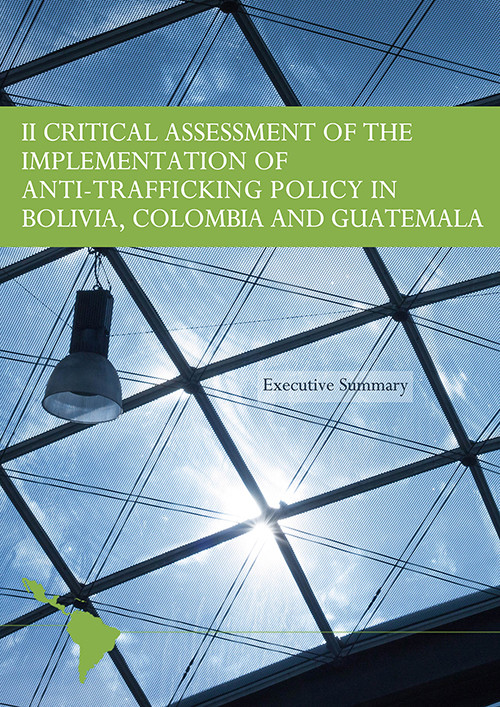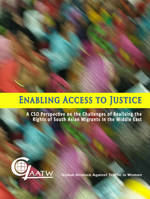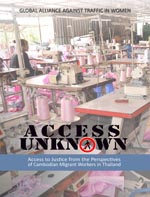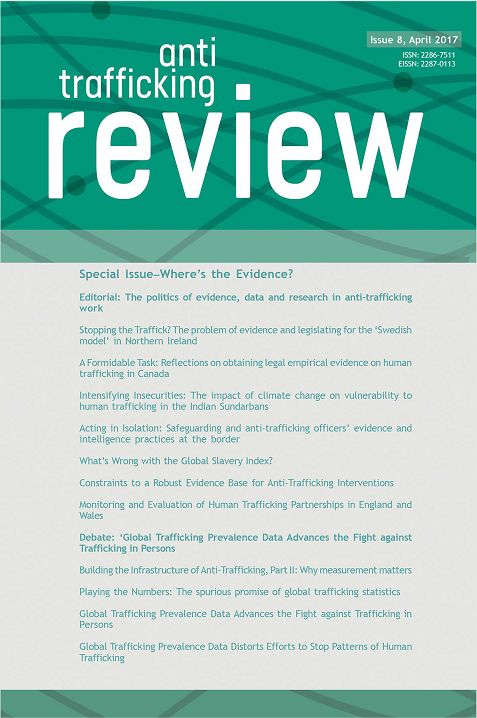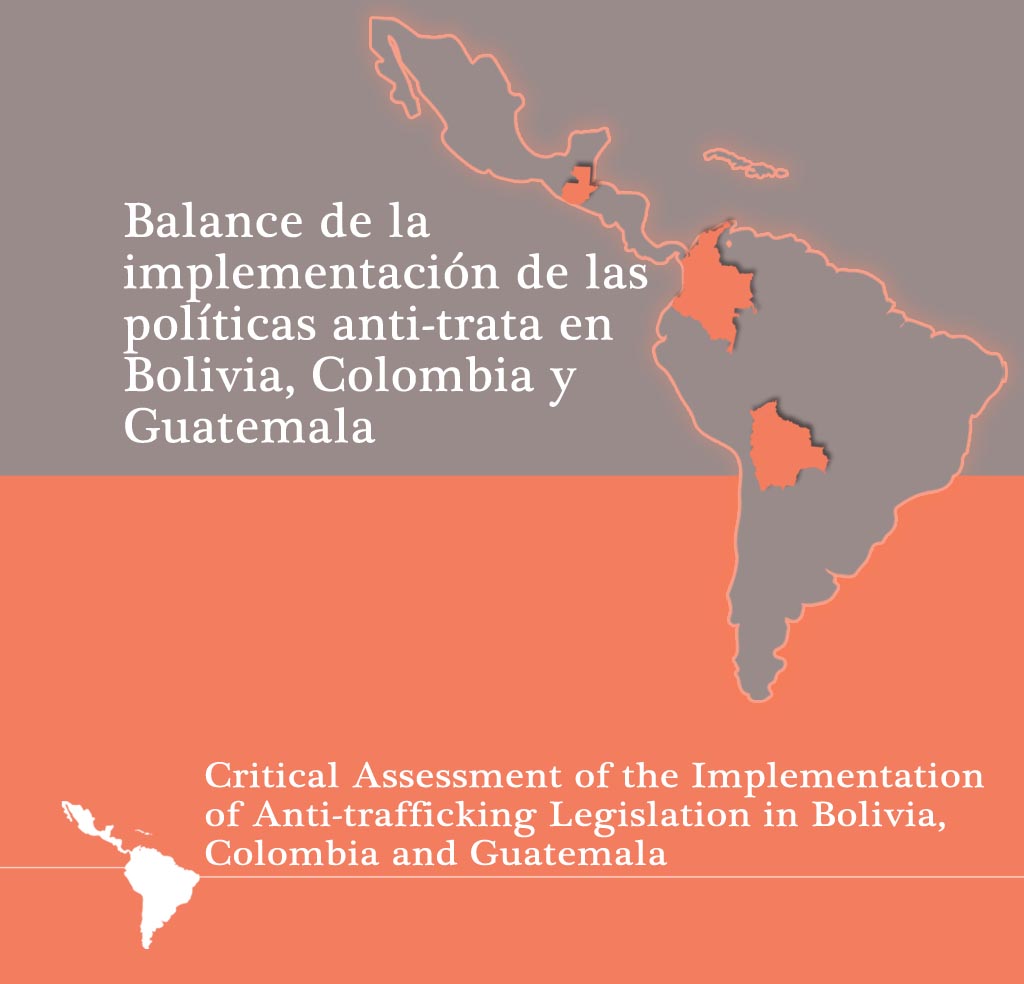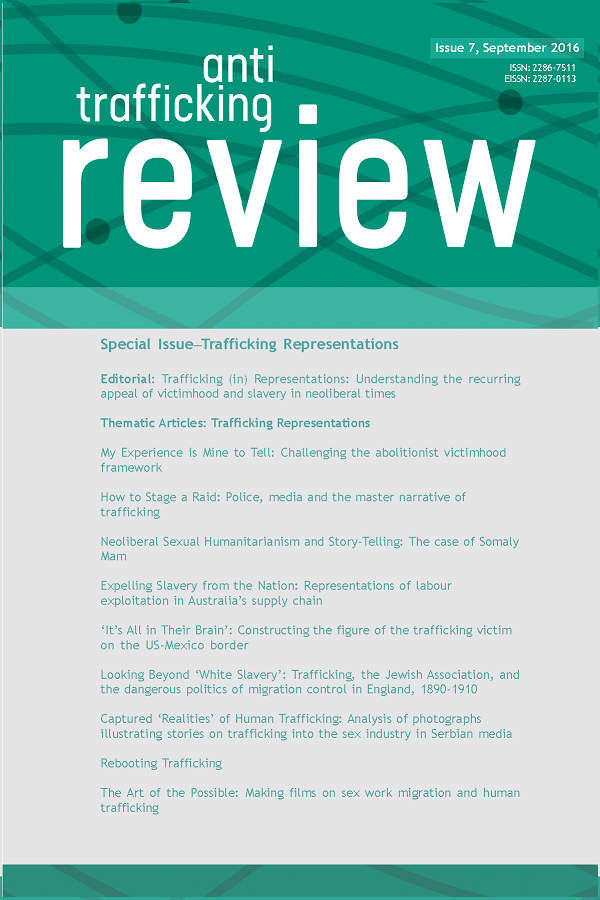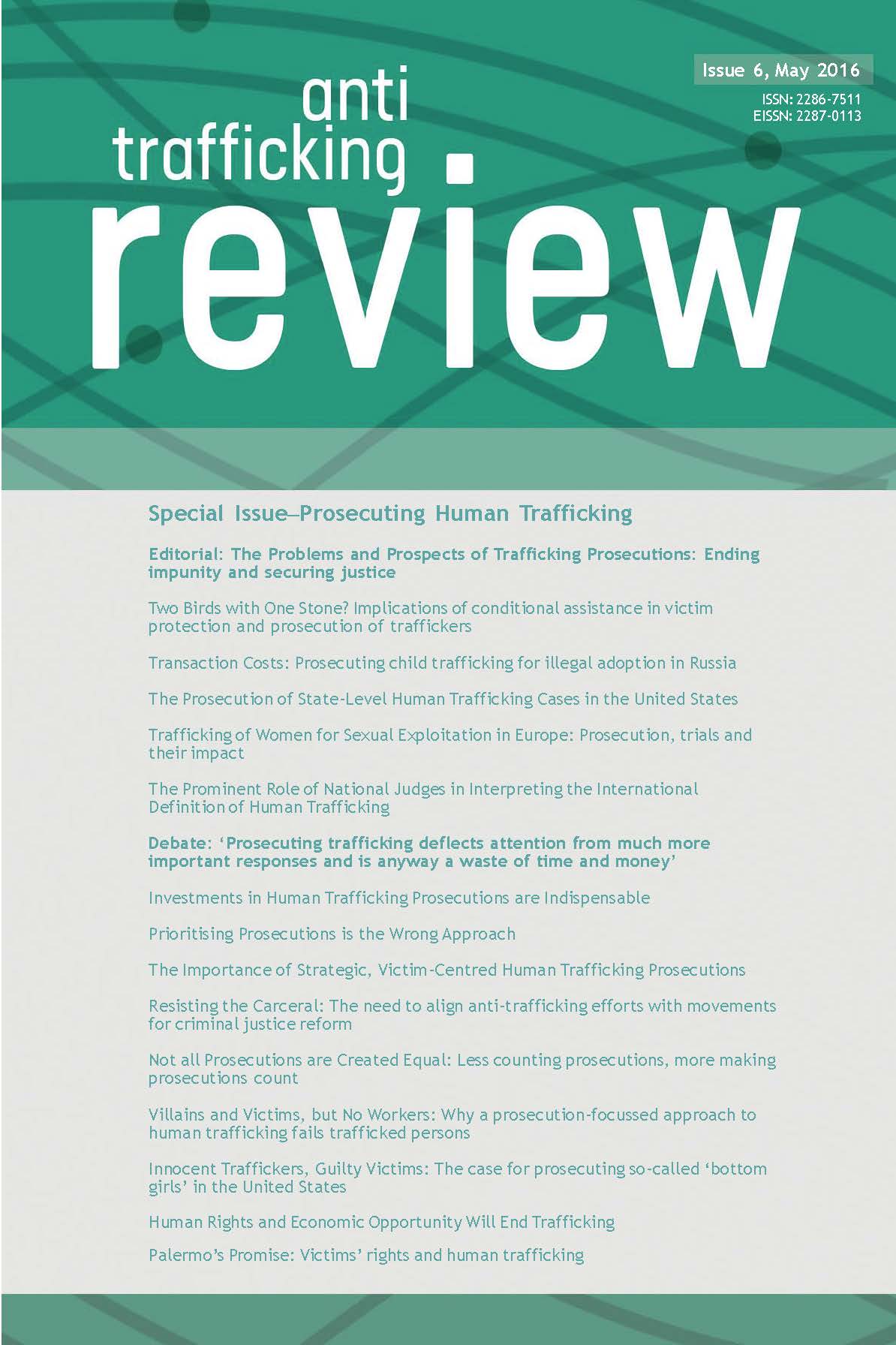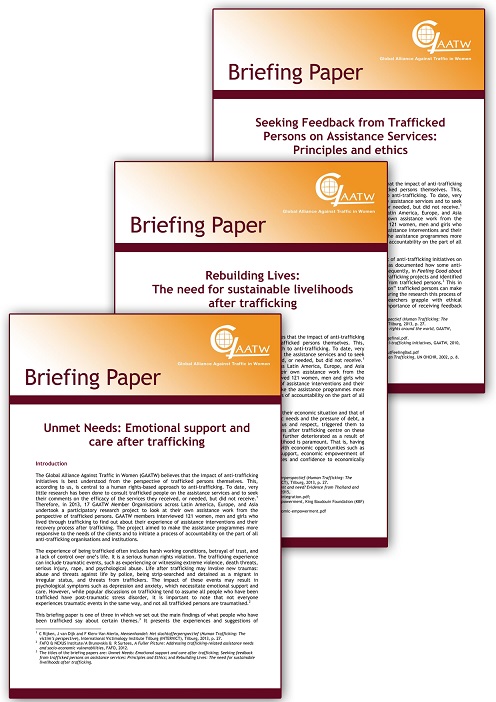E-Bulletin June 2019 - News from the GAATW International Secretariat
CEDAW General Recommendation on Trafficking in the Context of Global Migration
Since the end of 2018, the CEDAW Committee has been working on a new General Recommendation on trafficking in women and girls in the context of global migration. GAATW engaged with the draft GR in several ways and in close cooperation with our partners from the International Women’s Rights Action Watch Asia Pacific (IWRAW-AP). In December we attended an expert group meeting on the proposed GR in Geneva. In January we co-hosted, together with IWRAW-AP, a global civil society consultation on trafficking in the context of global migration in Bangkok, for around 40 representatives of women’s rights, migrant rights, sex worker rights, and anti-trafficking NGOs. In February we made a written submission to the CEDAW Committee, and contributed to the submissions of the Sex Worker Inclusive Feminist Alliance, and IWRAW-AP. And in February we took part in a half-day general discussion on the proposed GR, where we made an oral intervention. The first draft of the GR is now expected to be published at CEDAW’s 74th session in October, which will be followed by regional consultations between November 2019 and February 2020.
Both the written submissions and oral interventions focused, arguably disproportionately, on the issue of sex work. Sex worker rights organisations rightly pointed to the negative impact of anti-trafficking measures on the rights of sex workers and recommended the decriminalisation of sex work. Prostitution prohibitionists, on the other hand, stressed the high number of reported victims of trafficking in the sex industry and recommended the criminalisation of clients of sex workers as a way to reduce trafficking. However, the debate was supposed to be much broader than the issue of sex work. The concept note for the General Recommendation expressly states that it will focus on trafficking in the context of global migration and will not recommend a policy model on sex work. It was critical that the voices and experiences of sex workers were highlighted in this debate. It was lamentable that some other problems that migrant and trafficked women face, including detention and deportation, denial of assistance, residence and work permits, revictimisation by the criminal justice system and lack of opportunities to claim compensation, xenophobia in the country of destination and stigma in the country of origin, were underrepresented/sidelined. These are issues that we know sex worker organisations and prohibitionists alike can support and push states to correct.
We urge the CEDAW Committee to come up with strong recommendations for protection of the rights of all migrant and trafficked women. It is well documented how twenty years ago, during the negotiations of the UN Trafficking Protocol, the feminist divisions on the issue of sex work prevented the inclusion of strong protection measures for trafficked persons in the Protocol. We hope that history will not repeat itself here.
Learning from the experiences of women migrant workers
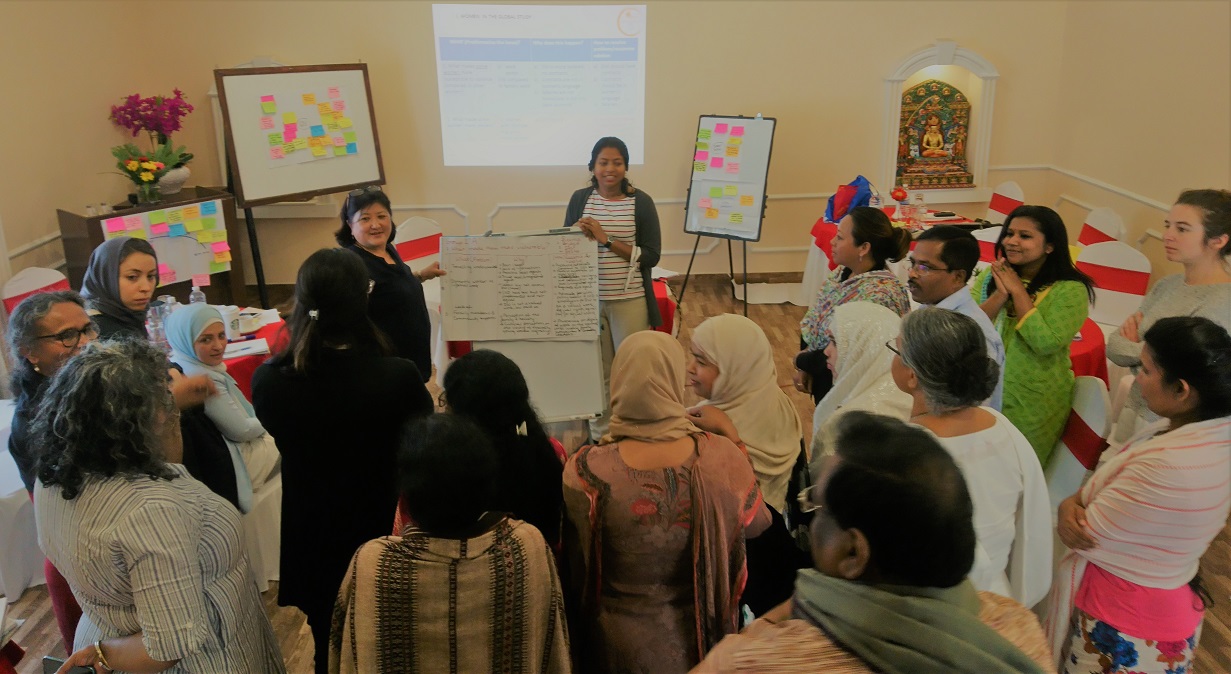 GAATW-IS and its partners across nine countries of origin (in South Asia and the Horn of Africa) and destination (in West Asia) have been working on a feminist participatory action research project over the last year to document and learn from the lived experiences of women migrant workers. One 9-11 March, a three-day workshop was organised in Kathmandu to discuss the country findings and to reflect on the research process. This was followed by a civil society roundtable on women migrant workers’ access to public services, co-organised by the GAATW-IS and our members in Nepal, coinciding with CSW 63.
GAATW-IS and its partners across nine countries of origin (in South Asia and the Horn of Africa) and destination (in West Asia) have been working on a feminist participatory action research project over the last year to document and learn from the lived experiences of women migrant workers. One 9-11 March, a three-day workshop was organised in Kathmandu to discuss the country findings and to reflect on the research process. This was followed by a civil society roundtable on women migrant workers’ access to public services, co-organised by the GAATW-IS and our members in Nepal, coinciding with CSW 63.
The research conducted in the nine countries addresses gender-based violence in the world of work; access to justice; and safe and fair migration. Reflecting on the research process and the emerging findings, partners felt that the knowledge generated at individual country level serves to create new collective knowledge that can be utilised over a longer time frame for the larger discourse on women workers’ rights. Strategies may emerge from the community level, from the women themselves which can lead to pragmatic work being done and that as practitioners, we need to reflect on what role the women can take and what is the support NGOs can provide: “NGOs have to know when we have to be ‘in front, beside, or behind’”.
The report of the research is currently being prepared. Some of the partners’ findings are being shared via GAATW’s current webinar series on “Gender-based violence in the world of work” throughout the month of June.
Migration from domestic work from Africa to West Asia
In November 2018 we started a new Feminist Participatory Action Research project, together with the International Domestic Workers Federation, to document the experiences of women from six African countries who migrate for domestic work to West Asia (see the January bulletin for more info). Most of the field work took place in January-March and involved several groups of respondents: potential and returnee migrant domestic workers, their families, recruitment agencies and brokers (formal and informal), trade unions and NGOs supporting migrant domestic workers, and government officials. In March the project team met to discuss the progress of the field research, reflect on the research process, and build the national researchers' capacity in data analysis and report-writing.
Some highlights from the research process and preliminary findings as shared by the researchers during the data analysis workshop include:
- A highlight from the research was the fact that this was the first time trade unions in Kenya and Uganda working with domestic workers conducted a research on the topic, particularly involving recruitment agencies and other key stakeholders. The research has so far created opportunities for KUDHEIHA in Kenya and HTS-Union in Uganda to develop partnerships with associations of private recruitment agencies, NGOs and other key stakeholders.
- Technology is playing an important role in enhancing African migrant domestic workers’ socialisation, well-being and access to information. For example, some of the Kenyan interviewees were part of a migrant domestic workers’ WhatsApp group that served as a platform to socialise, discuss and share information. In Kenya a website providing information on safe labour migration to the Middle East as well as a safe migration information mobile app were launched in 2019. During the presentation, there was a discussion with the workshop participants about the role of technology in the research process and in enhancing migrant domestic workers’ protection. The Uganda lead researcher, for instance, shared that she used the IMO messaging app to conduct a focus group discussion via video call with Ugandan migrant domestic workers currently residing in Saudi Arabia. In Zanzibar, the lead researcher used WhatsApp to interview three migrant domestic workers in Oman. The Ethiopian lead researcher observed that technology has not caught up in the Ethiopian context as it has in other East African countries.
- While some of the research countries like Kenya, Uganda and Ethiopia have introduced new policy reforms in a bid to enhance migrant workers’ protection, including the accreditation of private recruitment agencies and strengthening the terms of bilateral agreements with West Asian governments, migrant domestic workers in all the countries are still migrating outside the official routes, including to countries in West Asia where their governments have placed migration bans. For example, in Uganda, migrant domestic workers are only allowed to work in Saudi Arabia and Jordan, the two GCC countries which the Ugandan government has signed bi-lateral agreements with. Yet, the research found that there are Ugandan domestic workers working in Oman, Qatar, UAE, Bahrain and Kuwait. In Ghana, there is a complete ban on recruitment of Ghanaian citizens as migrant workers in GCC states, which has resulted in corrupt and clandestine labour migration practices including smuggling, trafficking and involvement of government officials in the recruitment of migrant workers.
Launch of Issue 12 of the Anti-Trafficking Review ‘Sex Work’
The new Special Issue of the Anti-Trafficking Review themed 'Sex Work' examines some of the current achievements – and challenges – of the global sex worker rights movement.
The first five articles explore the power of collectivisation among sex workers. They show that, whether in Canada, Latin America, Philippines or South Africa, sex workers around the world are organising to tell their own stories, including through creative and artistic means, claim their human, social, and labour rights, resist stigma and punitive laws and policies, and provide mutual and peer-based support. The next two articles examine sex work through a labour perspective, looking at the working conditions in the sex and entertainment sector in Thailand; and at how anti-trafficking raids undermine labour organising in Durbar - India’s iconic red light district. The final three thematic articles focus on the introduction of recent laws and policies that directly affect sex workers in the United States and France. One describes the process of developing the ‘Prioritizing Safety for Sex Workers Policy’ in San Francisco, which allows sex workers to report violent crimes against them without fear of arrest and prosecution. Another analyses the debates leading to the introduction of the sex purchase ban in France in 2016, linking them to anxieties about public order, national security and border control. Finally, one article picks apart the term ‘sex trafficking’ as used in American legal discourse and FOSTA as a form of epistemic violence against sex workers and urges academics and activists to stop using the term.
In the short articles section, one article describes the disastrous impact of FOSTA on sex workers in the United States, while the other highlights the need for donors to invest more in the sex worker rights movement. Finally, one article offers a review of Julie Kaye’s book Responding to Human Trafficking, showing how the anti-trafficking framework in Canada reproduces structures of domination that naturalise white settler colonialism.
Taken together, the articles in this Special Issue show that misguided anti-trafficking policies and initiatives are threatening sex workers’ safety, dignity, and rights. However, the sex worker rights movement is growing stronger and making itself heard. Given the diversity of sex workers it is imperative that organisations that advocate for the rights of women, LGBTI+ people, formal and informal workers, migrants, and trafficked persons, as well as movements that work for social, economic, and racial justice join in the struggle for sex workers’ rights and the decriminalisation of sex work.
Reconference
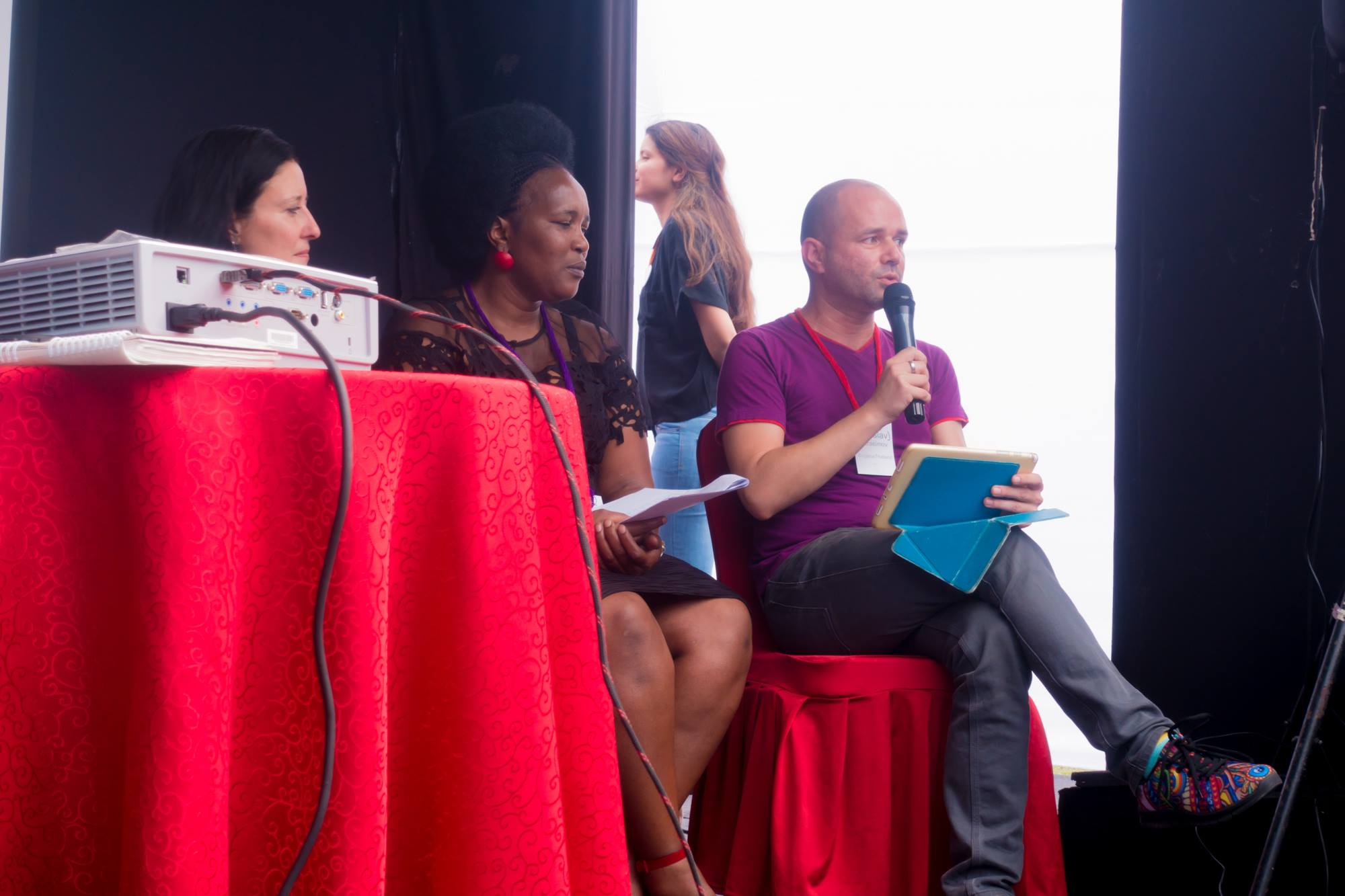 More than 500 activists, artists and allies from over 50 countries participated in the CREA Reconference to address the most challenging socio-political issues and their intersections with feminism, art and technology.
More than 500 activists, artists and allies from over 50 countries participated in the CREA Reconference to address the most challenging socio-political issues and their intersections with feminism, art and technology.
GAATW was invited to speak at Reconference and share our approach to human trafficking from the perspective of sex work as work. We stressed that the founders of GAATW, many of whom were migrant women, forged alliances with the movement for the rights of sex workers, a movement that was composed of women who came together to speak for themselves and make their demands heard. As feminists, our founders thought it was natural to support the struggle of this group of oppressed women without questioning the way in which they defined their lives. If sex workers said that “sex work is work”, then this is what it was for GAATW. It is also important to remember that the Alliance has always recognised migrant and trafficked women as courageous and enterprising women who set out to improve their lives and those of their families.
Of course, we know that the sex industry can be a dangerous and exploitative occupation. The same is true of other jobs, such as domestic work, agriculture, construction, fisheries, etc. The commonalities between these jobs are that they are often done by migrants and are excluded from labour legislation or are not well monitored. Therefore, if human trafficking, violence and exploitation occur mainly in poorly paid, labour-intensive and uncontrolled sectors, we believe that, in order to reduce such abuses, these sectors should be recognised and regulated by labour legislation. In the case of sex work, this recognition would allow sex workers to organise for better working conditions and collectively oppose exploitative practices.
This is a recognised as an anti-trafficking strategy in the domestic work, garment, or fisheries sectors, and needs to be recognised and implemented in the sex work sector too.



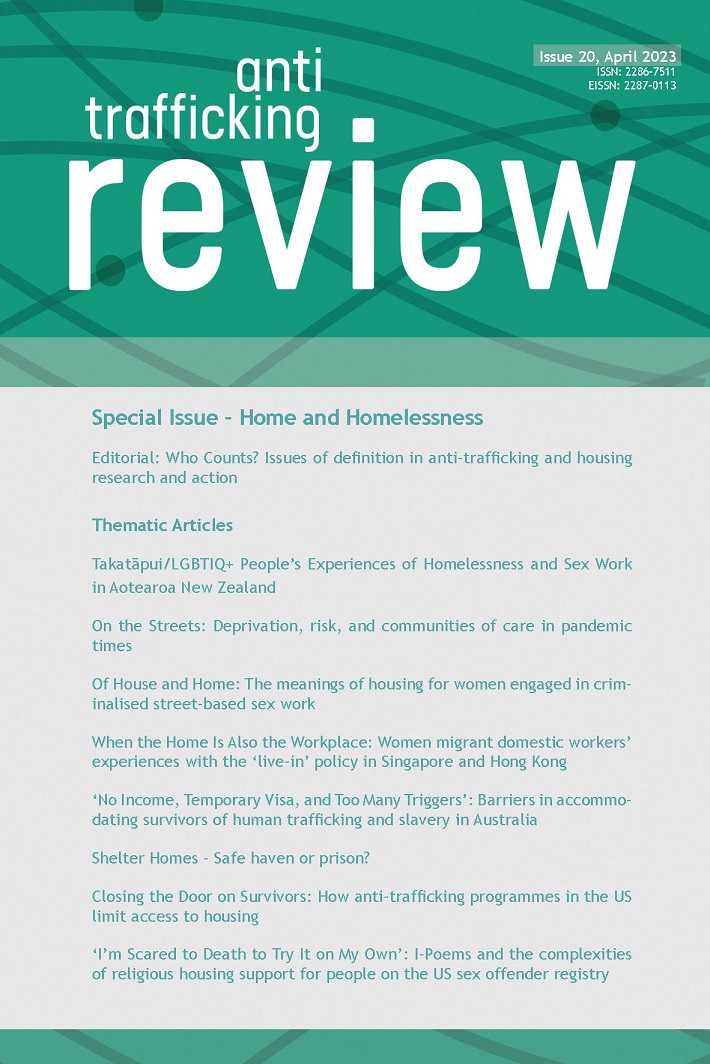
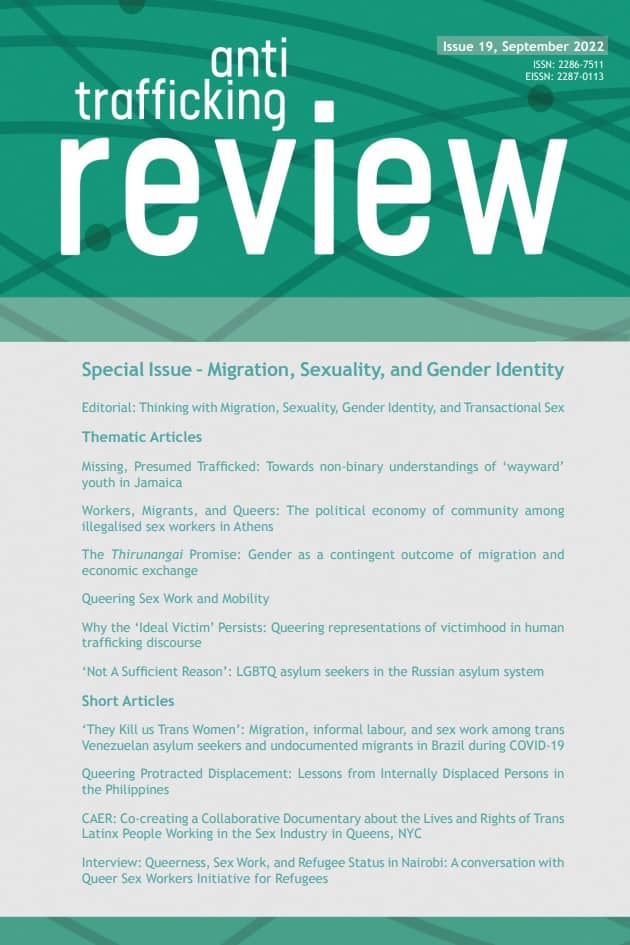
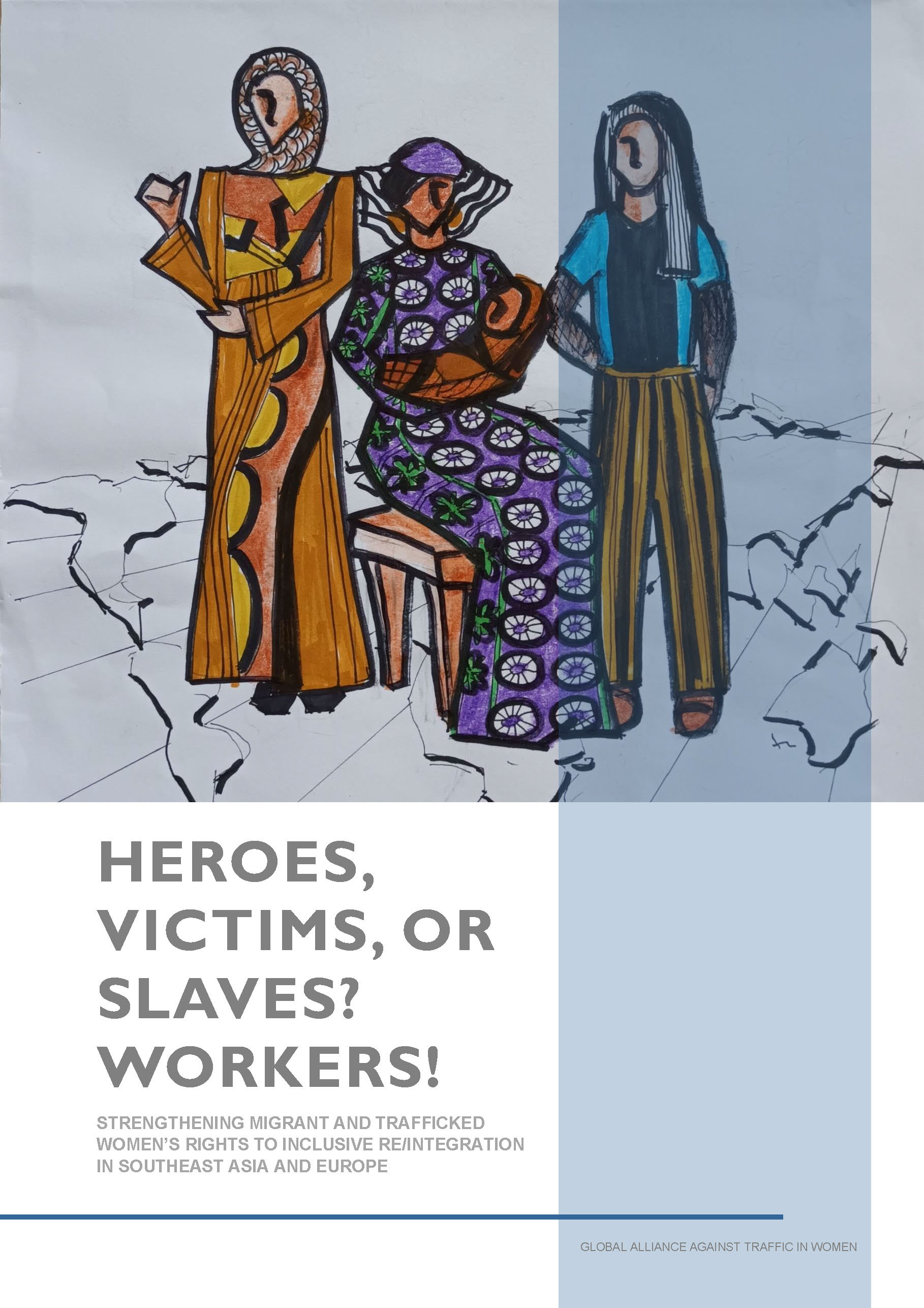
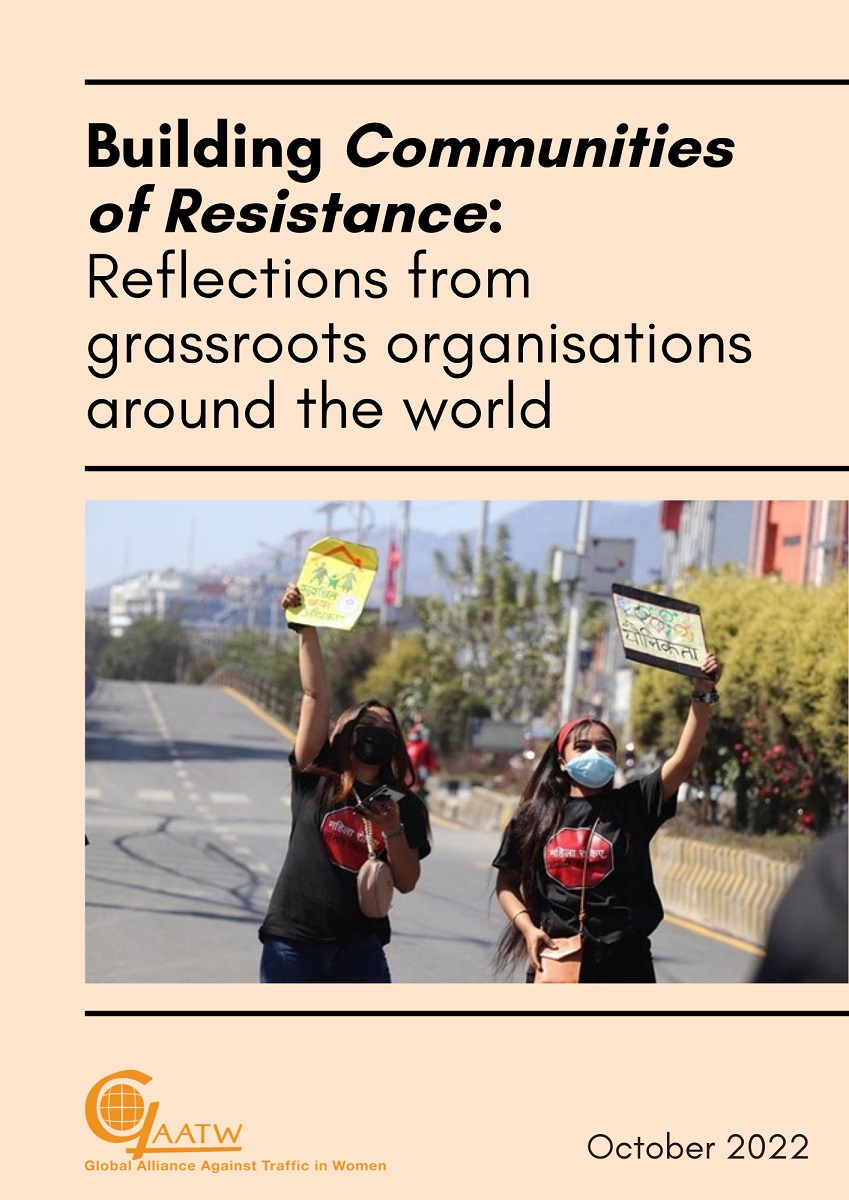
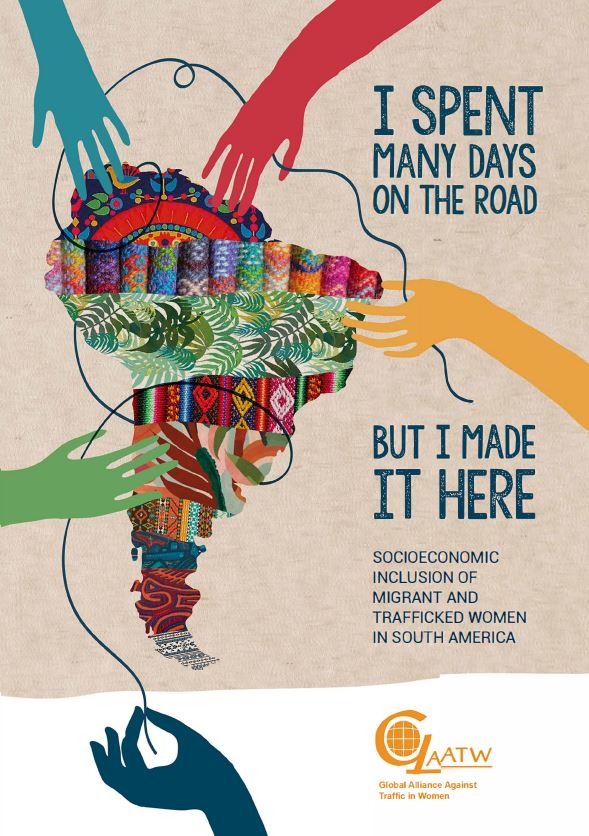
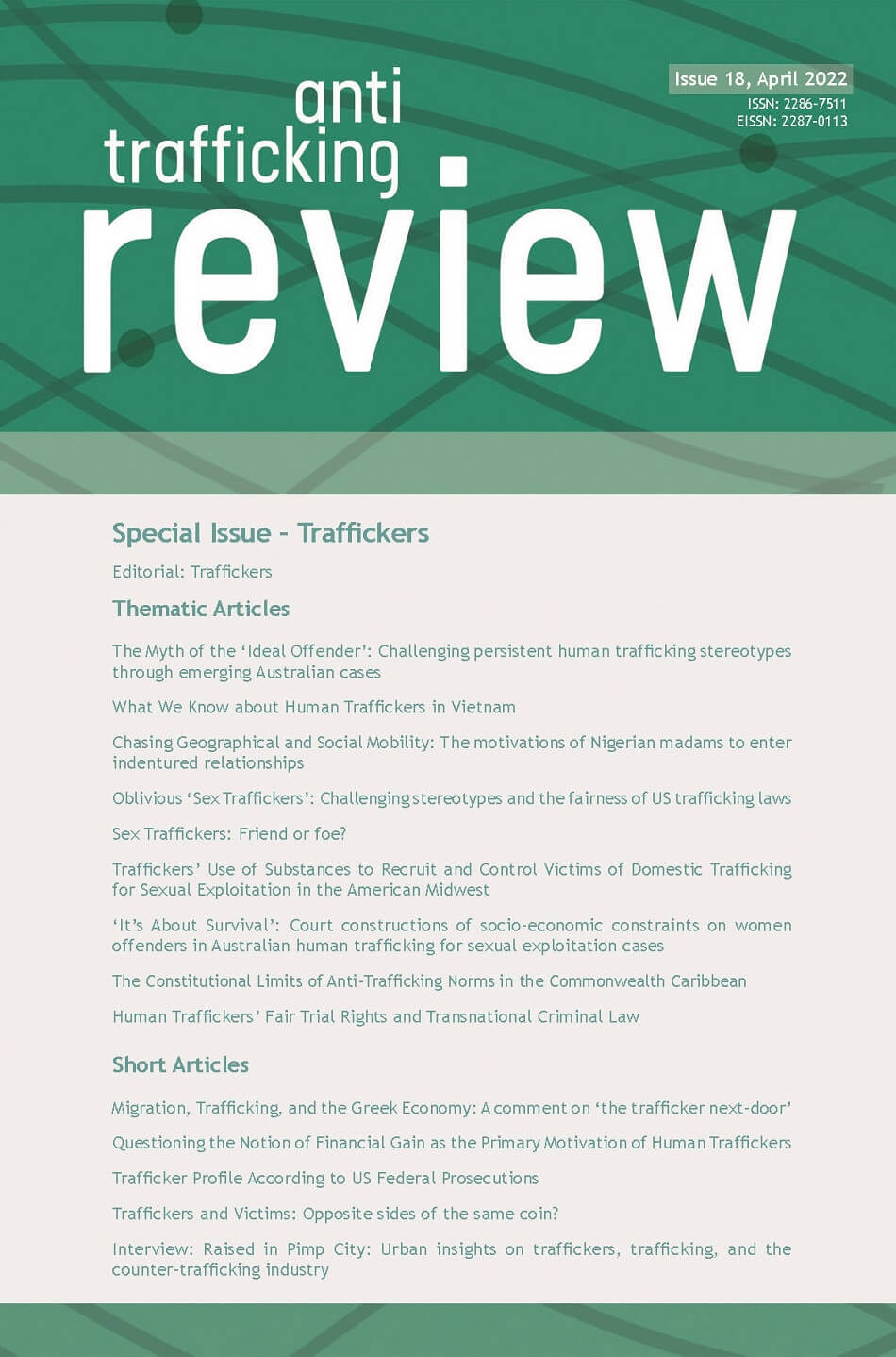
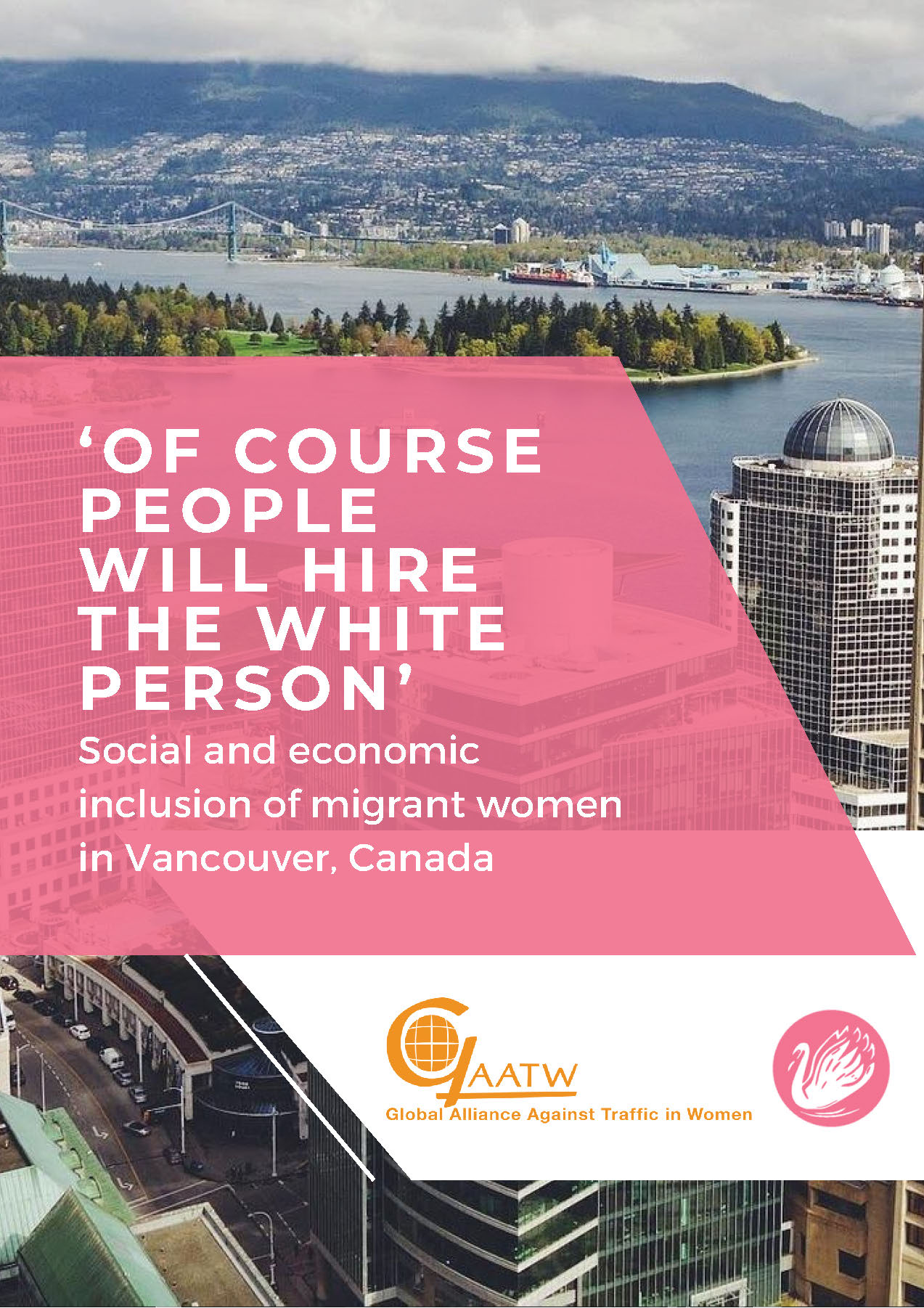
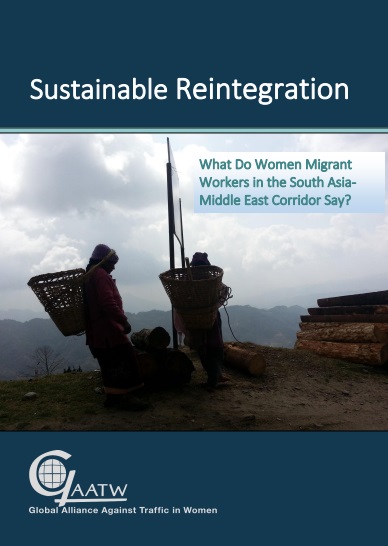
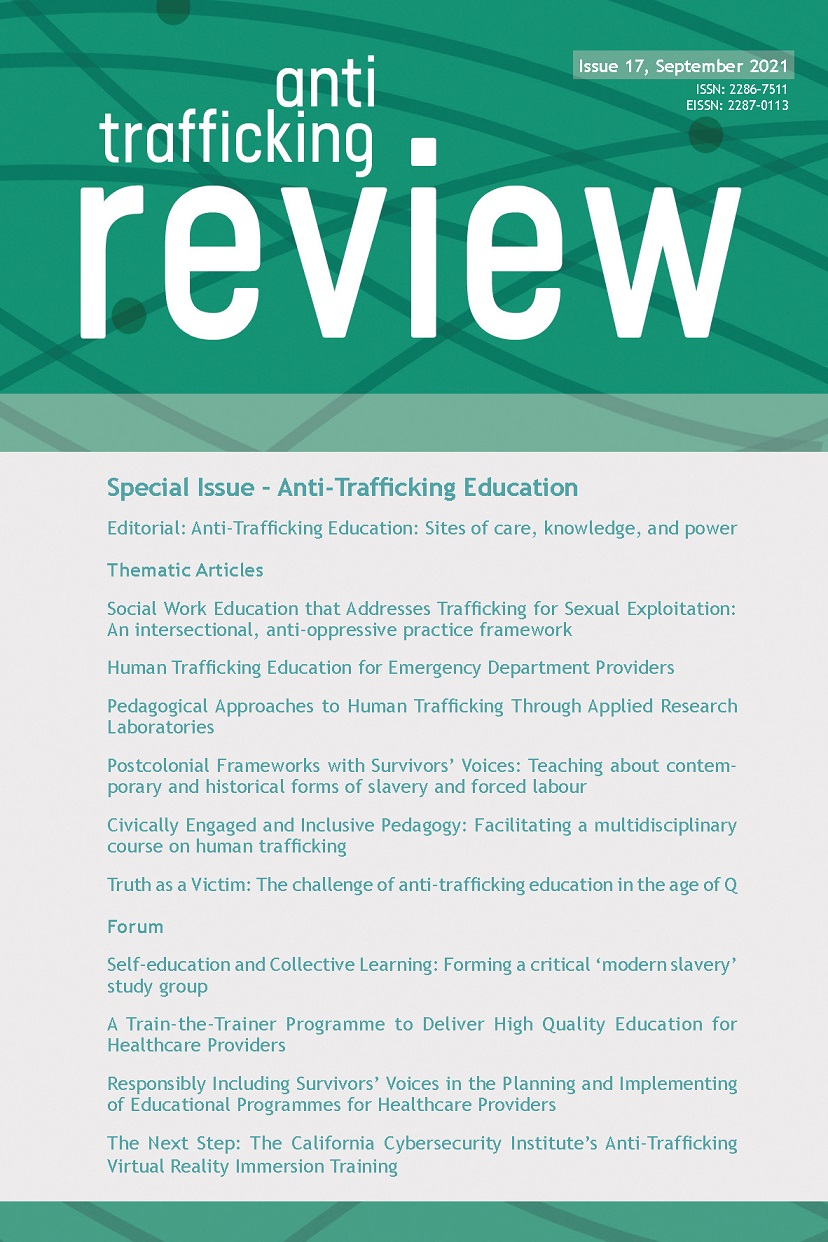
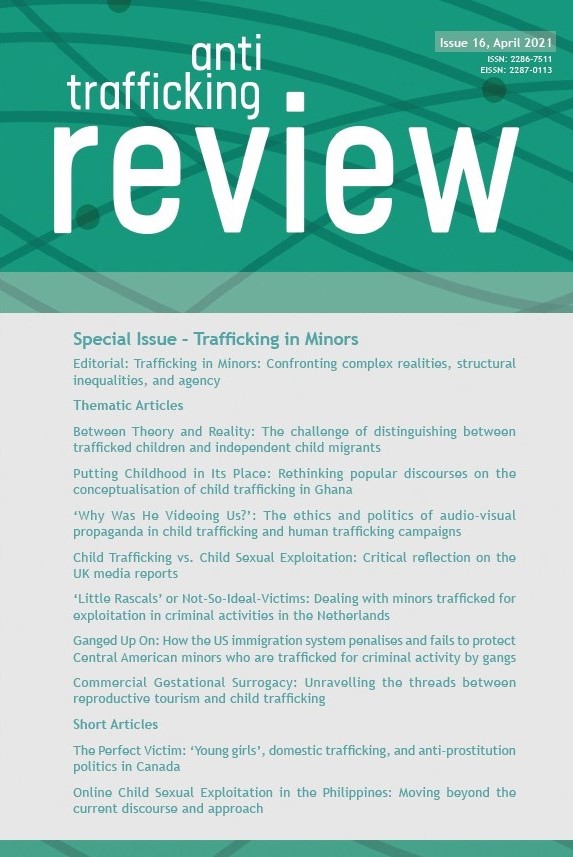
.pdf - Adobe Acrobat Pro 2_8_2021 4_36_32 PM.png)
